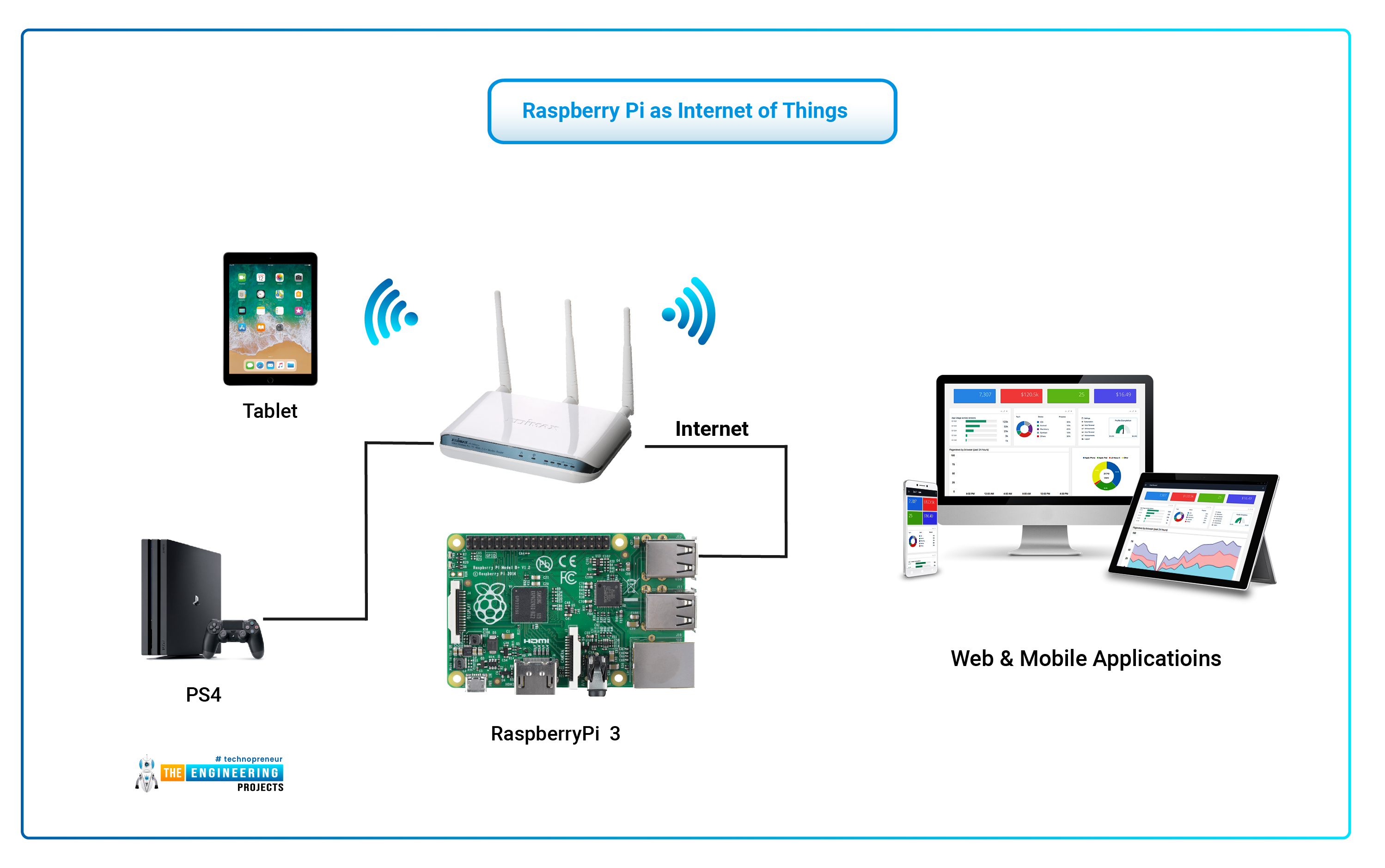SSH Remote IoT Raspberry Pi Free Download: Your Ultimate Guide
So, you're here because you want to dive deep into SSH remote IoT Raspberry Pi free download, huh? Well, let me tell ya, this is the place to be. If you've ever wanted to control your Raspberry Pi remotely using SSH, or set up IoT projects without breaking the bank, you're in luck. We're about to break it all down step by step, so grab a snack, sit back, and let's get started.
SSH remote access for IoT devices like the Raspberry Pi is not just a tech buzzword—it's a game-changer. Whether you're tinkering with home automation or building industrial-grade solutions, having the ability to manage your Pi from anywhere is a must-have skill. And the best part? You can do it all for free.
This guide isn't just another tech tutorial—it's your roadmap to mastering SSH and IoT on Raspberry Pi. We'll cover everything from the basics of SSH to advanced tips that'll make you feel like a pro in no time. Let's roll!
Read also:Unlock Your Potential The Ultimate Guide To Mastering A Project
What Exactly Is SSH Remote IoT Raspberry Pi Free Download?
First things first, let's get our terms straight. SSH stands for Secure Shell, and it's basically a protocol that allows you to securely connect to another computer or device over a network. When we talk about SSH remote IoT Raspberry Pi free download, we're talking about using this protocol to control your Raspberry Pi device remotely, all without spending a dime.
Why does this matter? Well, imagine being able to monitor your smart home setup from your office or tweak your IoT project while lounging on the beach. SSH makes that possible, and with Raspberry Pi being one of the most popular IoT platforms out there, the possibilities are endless.
Now, before we jump into the nitty-gritty, let's break down the key components:
- SSH: The secure communication protocol.
- IoT: Internet of Things, the network of interconnected devices.
- Raspberry Pi: A compact, affordable single-board computer perfect for DIY projects.
- Free Download: No need to shell out cash for expensive software or services.
Why Should You Care About SSH Remote IoT Raspberry Pi?
Let's face it—technology is evolving faster than ever, and IoT is at the forefront of this revolution. With Raspberry Pi leading the charge in the DIY tech space, understanding how to remotely manage your projects is essential. Here's why:
1. Flexibility: With SSH, you can access your Raspberry Pi from anywhere in the world, as long as you have an internet connection.
2. Security: SSH encrypts your data, ensuring that your IoT projects remain safe from prying eyes.
Read also:Ssh Remote Iot Device Android Apk Your Ultimate Guide To Secure Connections
3. Cost-Effective: Why spend money on proprietary software when you can use free, open-source tools?
4. Scalability: Whether you're running a single device or managing a fleet of IoT gadgets, SSH has got you covered.
How to Set Up SSH Remote IoT Raspberry Pi
Alright, let's get our hands dirty. Setting up SSH remote access for your Raspberry Pi is easier than you think. Here's a step-by-step guide:
Step 1: Enable SSH on Your Raspberry Pi
First, you'll need to enable SSH on your Pi. Don't worry—it's a breeze:
- Boot up your Raspberry Pi and log in.
- Open the terminal and type
sudo raspi-config. - Navigate to "Interfacing Options" and select "SSH."
- Choose "Yes" to enable SSH and hit "OK."
Step 2: Find Your Pi's IP Address
Next, you'll need to find your Raspberry Pi's IP address. Just type ifconfig in the terminal, and look for the "inet" address under the "wlan0" or "eth0" section. Jot it down—you'll need it later.
Step 3: Connect Using an SSH Client
Now that SSH is enabled, it's time to connect. You can use any SSH client, but PuTTY is a popular choice for Windows users. Here's how:
- Download and install PuTTY from the official website.
- Open PuTTY and enter your Pi's IP address in the "Host Name" field.
- Set the port to 22 and click "Open."
- Log in using your Raspberry Pi's credentials (default: pi/raspberry).
Advanced Tips for SSH Remote IoT Raspberry Pi
Once you've got the basics down, it's time to take things to the next level. Here are some advanced tips to make your SSH experience even smoother:
Tweak SSH Settings for Better Security
Security is key when working with IoT devices. Here's how to tighten things up:
- Disable Password Authentication: Use SSH keys instead for added security.
- Change the Default Port: Moving SSH off port 22 can help deter automated attacks.
- Limit Access: Restrict SSH access to specific IP addresses or users.
Automate Tasks with Cron Jobs
Cron jobs are a powerful way to automate tasks on your Raspberry Pi. Combine them with SSH, and you've got a recipe for efficiency. For example, you can set up a cron job to automatically back up your Pi's data to a remote server.
Where to Download SSH Tools for Raspberry Pi
When it comes to SSH remote IoT Raspberry Pi free download, there are plenty of options. Here are some of the best tools you can use:
1. PuTTY
PuTTY is a classic SSH client that's perfect for Windows users. It's lightweight, easy to use, and completely free.
2. OpenSSH
If you're on Linux or macOS, OpenSSH is your go-to tool. It's pre-installed on most systems, so you don't even need to download anything.
3. MobaXterm
MobaXterm is a powerful SSH client that offers advanced features like X11 forwarding and file transfer. It's great for power users who need more than just basic SSH functionality.
Common Issues and Troubleshooting
Even the best-laid plans can hit a snag. Here are some common issues you might encounter and how to fix them:
Problem 1: Can't Connect to Raspberry Pi
If you can't connect to your Pi, double-check the following:
- Is SSH enabled on your Pi?
- Is your Pi connected to the same network as your computer?
- Did you enter the correct IP address and port?
Problem 2: Permission Denied (Public Key)
This error usually means there's an issue with your SSH keys. Make sure you've correctly generated and copied the public key to your Pi.
Real-World Applications of SSH Remote IoT Raspberry Pi
So, how can you apply all this knowledge in the real world? Here are a few ideas:
1. Home Automation
Use SSH to control smart home devices like lights, thermostats, and security systems. With Raspberry Pi as the brain of your setup, the possibilities are endless.
2. Remote Monitoring
Set up a Raspberry Pi as a remote monitoring station for your business or home. You can use it to track everything from temperature to air quality.
3. Educational Projects
Raspberry Pi is a fantastic tool for teaching kids (and adults!) about technology. SSH adds an extra layer of learning by introducing concepts like networking and security.
Data and Statistics: Why SSH Matters for IoT
According to recent studies, the global IoT market is projected to reach $1.5 trillion by 2030. With billions of connected devices expected to come online in the next few years, the demand for secure, reliable remote access solutions like SSH will only grow.
In fact, a survey conducted by IoT Analytics found that 75% of IoT developers consider security their top priority. This highlights the importance of using tools like SSH to protect your projects and data.
Conclusion: Take Action Today
And there you have it—a comprehensive guide to SSH remote IoT Raspberry Pi free download. By now, you should have a solid understanding of how SSH works, why it's essential for IoT projects, and how to set it up on your Raspberry Pi.
But don't stop here! The world of IoT is vast and full of opportunities. Whether you're building your dream smart home or launching the next big tech startup, mastering SSH is a crucial step on your journey.
So, what are you waiting for? Dive in, experiment, and most importantly, have fun. And don't forget to share this article with your friends or leave a comment below if you have any questions. Happy tinkering!
Table of Contents
- What Exactly Is SSH Remote IoT Raspberry Pi Free Download?
- Why Should You Care About SSH Remote IoT Raspberry Pi?
- How to Set Up SSH Remote IoT Raspberry Pi
- Advanced Tips for SSH Remote IoT Raspberry Pi
- Where to Download SSH Tools for Raspberry Pi
- Common Issues and Troubleshooting
- Real-World Applications of SSH Remote IoT Raspberry Pi
- Data and Statistics: Why SSH Matters for IoT
- Conclusion: Take Action Today
Article Recommendations


